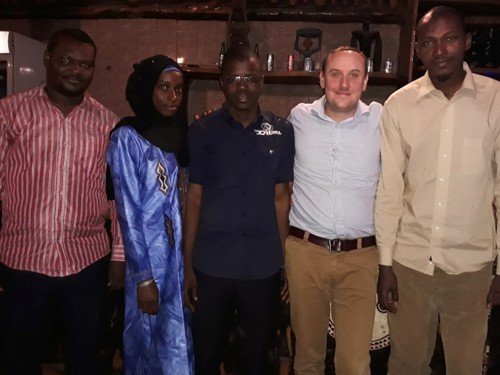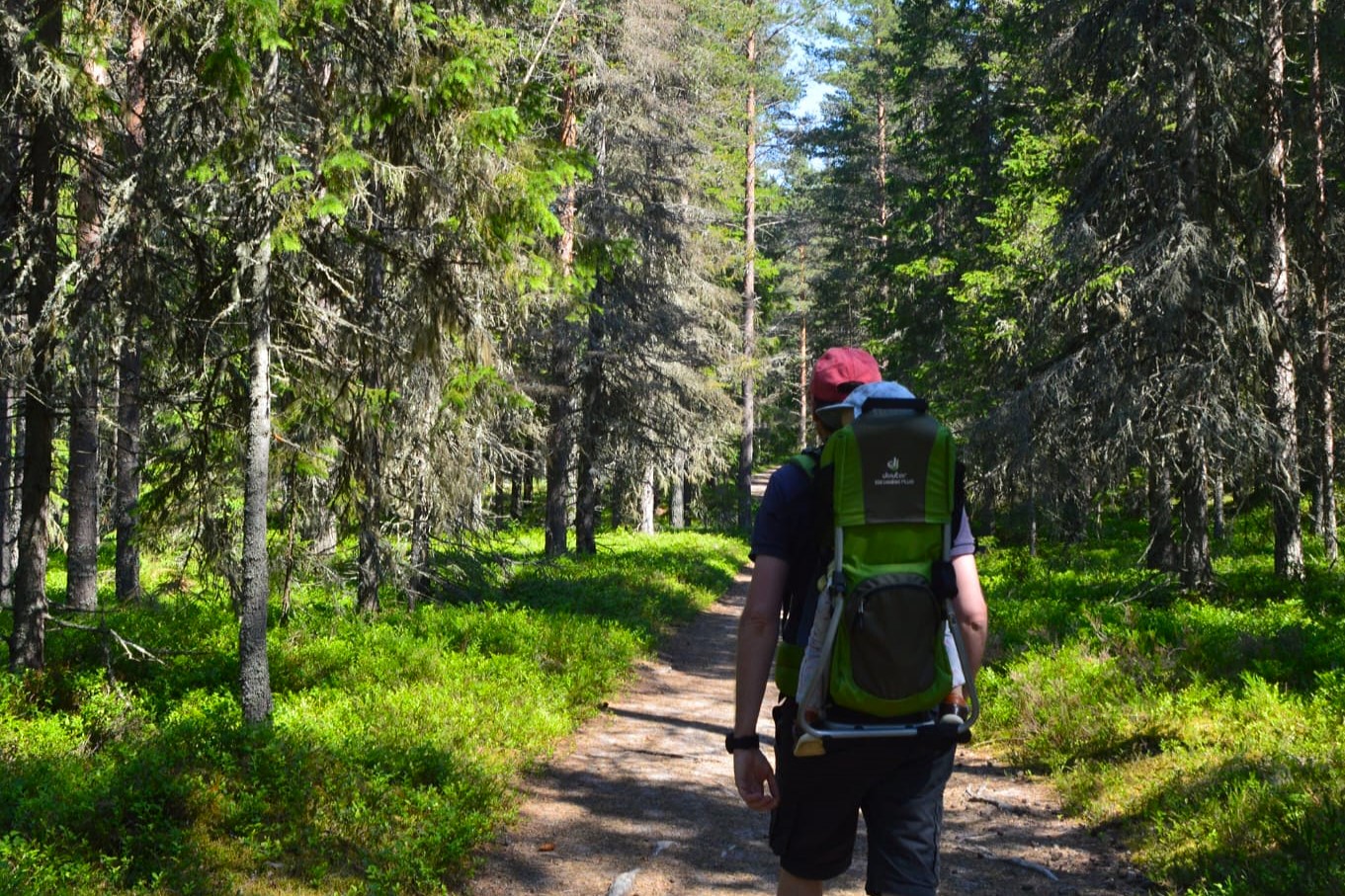Dr Grégory Chauzal: Forging human connections in the face of upheaval and instability

Dr Grégory Chauzal is the Monitoring, Evaluation and Learning (MEL) Sector Lead at NIRAS and Key Account Manager for France and Sub-Key Account Manager for French-speaking Africa. In the years he has worked in this field, he has learned tremendously about the importance of connection and community in difficult times.
Back in the early 2000s, life in Mali was ideal for Grégory. A recent graduate, he was doing an internship at the French Embassy in Bamako. He was in his twenties and waiting to hear if he had earned a spot in a master’s programme at Sciences Po in Bordeaux.
“I lived with a host family, and life was simple. I spent time with my Malian friends, enjoying our time together. They were my balance in life,” he says.
Living in a Malian home meant being part of a bigger community. The neighbours and others in the village formed part of Grégory’s close circle. This sense of belonging was “pivotal” in the MEL expert’s own words, especially for someone as social as Grégory. It was difficult to go back to France after that experience. Through the years, he kept in touch with the friends he made in the village.
In 2012, a military coup erupted in Mali, the effects of which are still being felt today both within its borders and across neighbouring nations in the Sahel. As a result, it has been years since Grégory visited the country, but his strong connection remains. Throughout his career, he has tapped into his deep knowledge of the region and being part of initiatives where his expertise is needed the most.
“At NIRAS, you are not alone. You’re part of a larger community, and limitations become opportunities. Allowing for interaction with people who are doing the same thing but in totally different countries and sectors, whether that’s in marine ecology, energy or civil society, always brings about insight. I appreciate the opportunity to interact with these people, working with them to find a solution.”
Grégory Chauzal
With his expertise in Francophone Africa, Grégory has contributed greatly to NIRAS’ MEL portfolio in the region, particularly within fragile and conflict-afflicted contexts. His areas of focus – peace, security, governance and stabilisation – have been instrumental to several projects. These include several conflict-sensitive MEL projects in Mali, Niger, Burkina Faso, Cameroon, Chad, Nigeria and, more recently, in Eastern Democratic Republic of the Congo.
Originally, Grégory had wanted to become a researcher and university professor. But after working at Sciences Po as a researcher, and in the shadow of the military coup, Grégory shifted to development with a focus on security and stabilisation in Sub-Saharan Africa.
“Security came to me,” he says. “The Sahel had been a region for humanitarian actors and academics, but not for military operations. When the military coup happened, when the security situation deteriorated a lot in the region, other actors got involved. Think tanks and governments became interested in what was happening there and why. This crisis decided a lot about my career.”
From there, he worked with the Ministry of Defence in France as well as security think tanks and peace research institutes. His area of specialisation became the peace situation in the region, particularly in the Sahel.

In his line of work, Grégory must stay abreast of rapidly evolving changes and engage with the people directly involved. Whenever possible, he visits the locations of MEL assignments, but oftentimes due to security issues, this is not possible. Then he gets in contact with a network of partners – such as research centres and consultancy firms located in the region – as an added source of information of the situation on the ground.
“I’ve been working on the Sahel for 20 years, and with time you know people in the region. I've been working with them to collect data and run interviews for me since I can’t be there myself anymore, even though I want to,” Grégory shares. “When the people I talk to stop answering their phones, that’s when I know something has happened. Sometimes, I receive a message saying that a contact has been arrested or abducted. Of course, it doesn’t happen every day, thankfully. But when it happens, it’s very difficult to handle. We try to make sure our partners are safe, and we are very much aware of our responsibility towards them.”
For Grégory, this reality steels his conviction to keep going. These assignments help large initiatives understand the security situation of communities, address the needs of those affected and inform future programmatic work of governments or institutions like the EU. More than simply a job, however, Grégory now considers this – his expertise in peace, security and governance and the Sahel as well as the time he has spent there – to be an integral part of who he is.
“Greg led the enumerator training for this effort, and despite the high-pressure environment, he managed to keep morale high with his humour and encouragement, while ensuring the team stayed focussed and detail-oriented. His ability to connect with people made a tangible difference in the quality of the data and the experience for everyone involved.”
Raphaëlle Bisiaux, MEL Expert at NIRAS
“You can’t work for 20 years in the same area without feeling it’s already a part your flesh and blood. You can’t continue for 20 years without having a sense of purpose.” he says.
Despite the subjects he tackles in MEL, Grégory is an optimistic and encouraging presence. In conversation, he becomes very animated, and it is easy to see that he is, as he claims, a ‘social animal’ – always happy to be in the presence of others. This spirit ties in very well with his work in MEL, where gathering data, conducting interviews and engaging with people is part for the course.
In his work at NIRAS, interacting with colleagues is not confined to the company’s office in Paris, where he is based. Grégory works with a large network of colleagues around the world, something he deeply enjoys, both on a personal and professional level. As MEL in peace and security is a complex subject that often requires innovative methods, he knows from experience that his specific practice in MEL can benefit from the perspectives of other experts.
“At NIRAS, you are not alone. You’re part of a larger community, and limitations become opportunities,” Grégory says. “Allowing for interaction with people who are doing the same thing but in totally different countries and sectors, whether that’s in marine ecology, energy or civil society, always brings about insight. I appreciate the opportunity to interact with these people, working with them to find a solution.”
Fellow MEL expert Raphaëlle Bisiaux shares that it is a joy to work with Grégory, recalling a project on developing a knowledge and monitoring platform in the Lake Chad Region and Central Sahel. In this massive project, they had to collect various data from 10,000 respondents in Niger, Nigeria, Cameroon and Chad.
“Greg led the enumerator training for this effort, and despite the high-pressure environment, he managed to keep morale high with his humour and encouragement, while ensuring the team stayed focussed and detail-oriented,” Raphaëlle says. “His ability to connect with people made a tangible difference in the quality of the data and the experience for everyone involved.”

Because community is a vital part of Grégory’s life, he makes it a point to inspire a sense of fellowship among people. An important part of this is sharing the things he learns with others at work and even at home. Once, when he worked on a MEL project in education for NIRAS, he received stories and photos of schools in Western Africa, some which had been destroyed by armed groups.
“How can you not be affected by that?” says Grégory, who is a father to three kids. “So, I tell my children these stories so that they know what’s happening in other parts of the world. I make sure I’m not ignoring that kind of reality, but rather living fully with that, and I'm transmitting that knowledge to the people I work with and the people who matter to me.”
Years after his internship, Grégory’s connection to Mali and Sub-Saharan Africa is as strong as ever. Although the country has changed, his deep-rooted sense of community that came from his time there lives on, strengthening his love for the region and a resolve to contribute to its brighter future.


